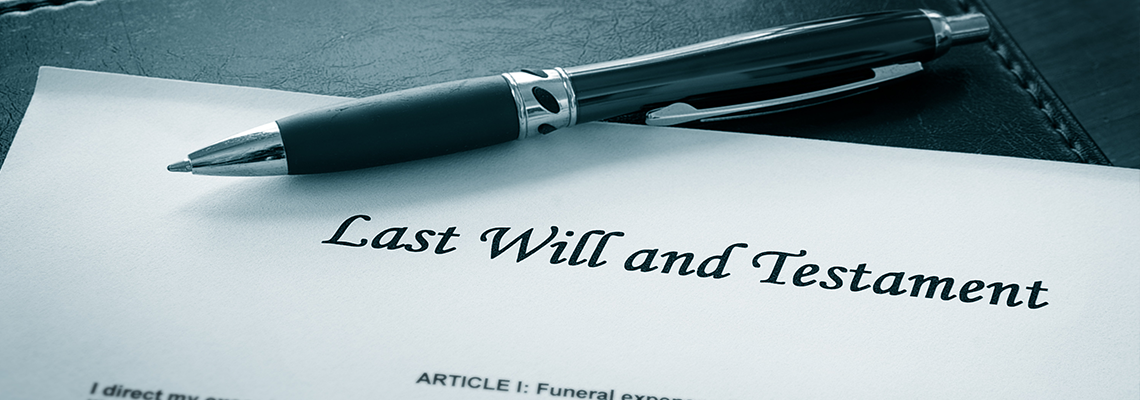
Will Contests: Understanding Legal Capacity and Dementia
Wills and testaments are an important part of preparing for the unknown. It gives people control over what happens to their assets, estates, and posterity. But there are times when the decisions made while creating the will may not be valid, or someone may think the will isn’t valid. This is when someone may challenge the will.
One ground for challenging a will is that the person executing the document lacked the mental capacity to make sound decisions. Let’s look at a possible scenario: Son A feels that Son B got a larger share of the decedent’s estate because, at the time of authorizing his will, the father was already suffering from dementia or Alzheimer’s. Son A thus challenges the validity of the will.
One problem immediately arises, however. The mere fact of having Alzheimer’s or dementia does not legally equate to proof that the will-writer lacked the “sound mind” required by law to pen a will. The contesting son will have to prove by other means that, at the time the will was written and signed, the father exhibited signs of lacking the necessary mental capacity, which is referred to in legal terms as testamentary capacity.
If you are looking to contest a will in or around San Francisco, California, contact the Law Offices of David H. Schwartz, INC. Attorney David H. Schwartz will review the document with you and discuss the circumstances surrounding its execution that may warrant a legal challenge based on testamentary capacity.
Attorney Schwartz has been practicing law in the Greater San Francisco Bay Area for more than 45 years and is proud to serve clients throughout the region, including San Jose, Santa Clara, San Mateo, Oakland, and Alameda County.
Definition of Legal Capacity to Execute a Will
California probate law expresses that all persons have the ability “to make decisions and to be responsible for their acts or decisions” unless shown otherwise in a court of law. In other words, if you’re contesting a will based on the person’s mental condition, whether dementia or Alzheimer’s, a statement by a doctor will not necessarily be sufficient.
The law requires that a contestant of a will must establish functional impairment on the part of the will writer by offering evidence of a mental deficit that has a significant impairment on their decisions.
As for a will itself, California law requires that the author of the will be at least 18 years of age and of sound mind. Of sound mind – or possessing testamentary capacity – means that the person:
Understands the nature of the testamentary (writing a will) act
Understands and recollects the nature and situation of their property
Understands who their close relatives are and how they will be affected by the terms of the will
Is not suffering from a mental disorder
A diagnosis of dementia or Alzheimer’s would likely satisfy the last evidentiary requirement for a challenge, but the other three requirements still must be proved. Even with a mental disorder like dementia or Alzheimer’s, a person may still be able to understand what they’re doing, the property they are passing on, and the effects on their heirs.
Who Can Challenge a Will?
A close friend or colleague at work may feel slighted by being left out of their friend’s will, but they would have no legal standing to contest the will. Generally, only those persons actually named in the current will, or in a previous will, or those who stand to be inheritors under the state’s law of intestacy if there were no will, can actually contest a will.
Proving Lack of Capacity in Court
The contestant of the will has the burden to show that the person authoring the will failed to meet the four requirements for being of sound mind when the will was executed.
If the will were just written weeks or months prior to the person’s death, there may still be enough evidence and eyewitnesses who can testify on the contestant’s behalf. A will written 10 years ago, however, may prove a much harder legal hurdle. Memories fade, and it may prove difficult to assemble the proof necessary or to find people close enough to the situation to describe the will writer's mental state.
Remember, a doctor’s diagnosis of dementia or Alzheimer’s is generally not sufficient by itself to prove testamentary incapacity.
Experienced Guidance When You Need It Most
If you suspect a lack of mental capacity, it may also be the case that one beneficiary took advantage of that and exerted undue influence when the will was written.
Bottom line, you’re going to have to challenge the testamentary capacity of the person who left the will. Often, this requires the testimony of an expert witness, who is many times a trained professional who specializes in neuropsychology and can interview all parties prior to providing testimony to piece together what happened.
If you are considering contesting a will in a probate court proceeding in or around the Greater San Francisco Bay Area, contact the Law Offices of David H. Schwartz, INC. Immediately, so Mr. Schwartz can review the situation with you and advise you of the next steps you should take.